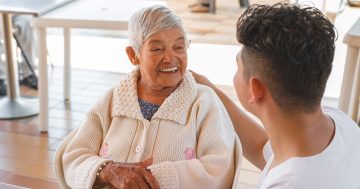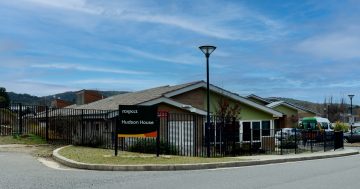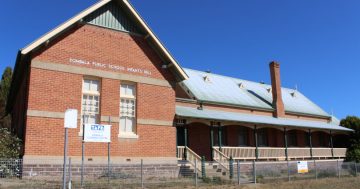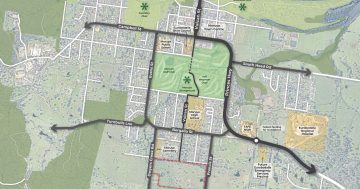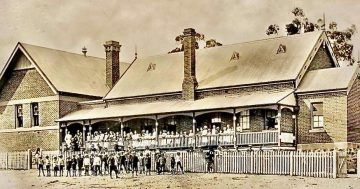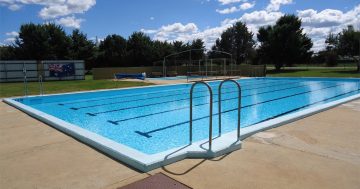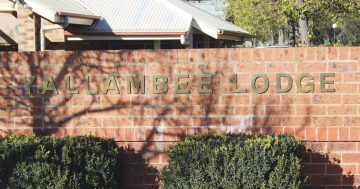
Bombala community project #dares2bare4agedcare will be launched on 19 August. Photo: Sophie Campbell.
In a David and Goliath style battle, locals in the tiny rural town of Bombala in Southern NSW, are fighting hard to reinstate aged care services for their rural community.
Despite an estimated town population of just 1400 people, locals are punching back against the 2022 closure of the town’s only aged care hostel – already raising an unbelievable $300,000 towards the reopening of a community run residential hostel.
But in a bid to “lay the fate of aged care services across Australia bare”, 12 Bombala locals – including members of the Currawarna Assisted Living Ltd board (CALL) and award-winning artist Lucy Culliton – have stripped off in protest!
The “Dare2bare4agedcare” project has been given the thumbs-up by the local community and further across Monaro.
CALL board chairman, Keith Campbell, said he hoped the nude calendar would not only act as a major fundraiser for Currawarna’s reopening, but would also be a catalyst for more important community and political conversations around the future of aged care in the bush.
“This calendar is not just about fundraising,” Keith said, “although many in our community would argue the content is priceless! But this is also about how we value older people in our community and what the future of care and quality of life (a future that we all aspire to) should look like. And what role our communities and all tiers of government should be taking in this space.”
On 19 August, not only will all (almost) be revealed at the nude calendar launch, but the community is also invited to a silent art auction, which features some of Lucy Culliton’s prize-winning work.
The launch will also include news on staffing and possible opening dates, as well as information on scholarships CALL will offer to locals to train as aged care workers at Currawarna.
The original Currawarna Aged Care facility was opened in 1979 and was managed by a board of directors under the auspice of the Catholic Archdiocese until 2006.
At that time, many changes came into place in regard to aged care services.
As a direct result of these increased challenges and pressures, the management of Currawarna was passed over to the provider Southern Cross Care NSW & ACT.
In early 2022, without any consultation with the community or existing residents, families and staff, Southern Cross Care announced they were closing the only facility in Bombala, just as soon as all existing residents were transferred to alternate aged care facilities in other towns. Put simply, the 34 residents of Currawarna were forced from their ‘home’ and forced to relocate to alternate aged care facilities at the coast or in Cooma, and at least 100 km away from their family and friends.
The Bombala community and the residents’ families have fought hard to entice other private aged care providers to take over the facility, but to no avail.
Current aged care industry reports clearly indicate that the community of Bombala is not alone in its current aged care crisis. Similar facilities across regional Australia are operating at a loss and, as a result, many regionally based facilities are closing their doors.
The building of Currawarna, originally built and designed by the work and fundraising of the local community, is in excellent physical and commercial condition.
Currawarna consists of 33 single rooms with en suites, with communal lounge areas throughout the building, a commercial kitchen and laundry, three large activity areas and extensive gardens. There is also huge potential to expand the capacity and reach of the facility in coming years.
After extensive research and advice from several aged care service providers, the company Currawarna Assisted Living Ltd was formed and was granted charity status in late 2022.
The aim is to reopen Currawarna in late 2023, while providing a totally new way of caring for the elderly in Bombala and surrounding townships. This entails offering ‘Care at Home’ services to residents within the facility, while providing a safe and comfortable homely environment, where they will have 24-hour care available to them.
To facilitate the reopening an initial operating capital of $1 million will be required. It is hoped to aggregate this through charitable contributions, crowdfunding and via government grants. The local community has already raised $300,000 via local charity events and donations.







